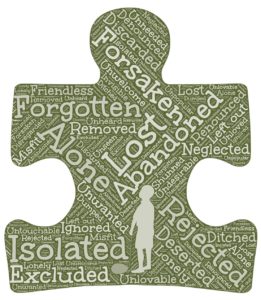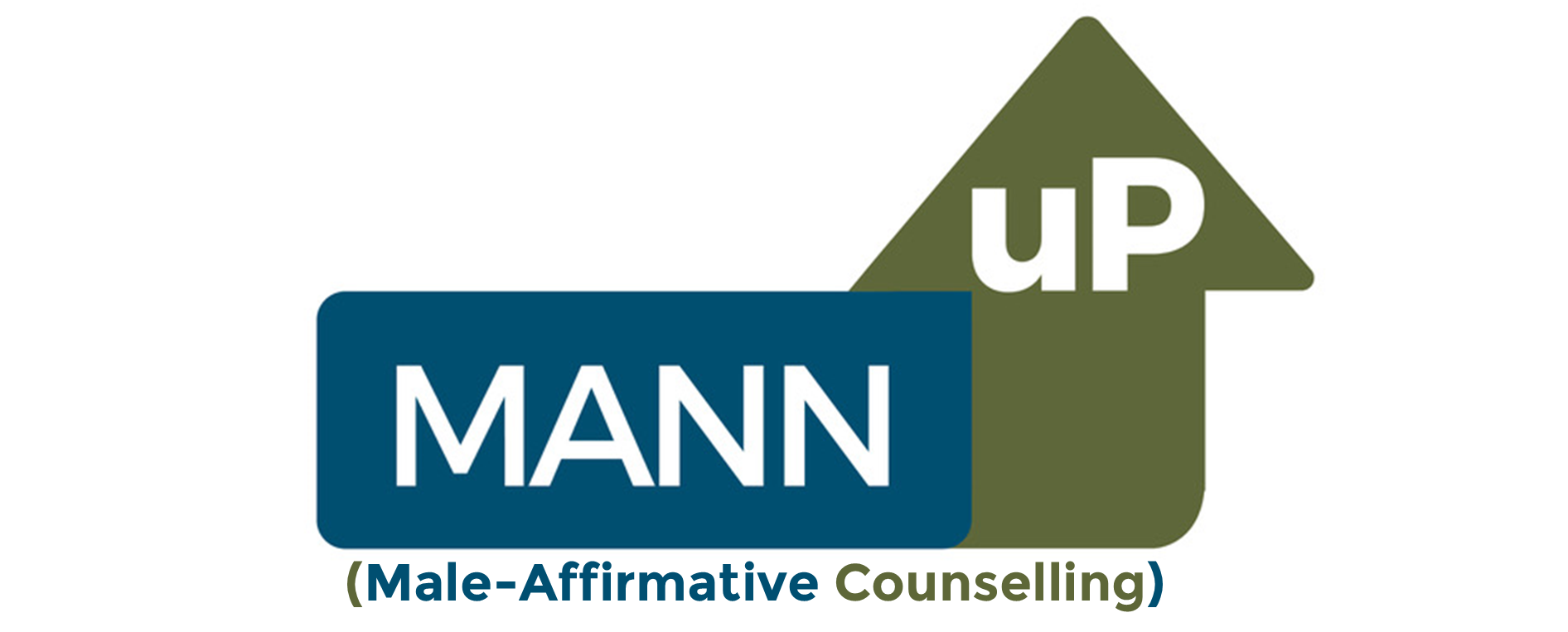Q. in terms of wellbeing are men a special case?
Short answer = No.
Long answer = Male wellbeing is a complex societal and cultural issue.
why male-affirmative?
Research shows that males are just as likely as females to encounter challenges to their psychological wellbeing they currently do not tend to access support services to the same extent.
There are many potential reasons why this might be the case including:
- Males are often exposed to unhelpful or inhibiting societal and/or cultural narratives (stories and scripts), on masculinity that cause them to think and feel that they should not connect with their psychological wellbeing issues, or that they should try to deal with them alone for fear of being perceived as weak or in some way less of a male if they admit a to a difficulty or seek help.
- Males have not been empowered to attune to their emotional self and develop the vocabulary and skills to become emotionally articulate in terms of recognising their emotional needs and feeling confident to speak out to have them addressed.
MANN uP believes that everyone (dis-regardless of what sex, gender identity, sexuality, race, religion, nationality or age they are or background they come from), should have the right and ability to be able to access services and support to resolve issues that may be challenging their mental and emotional health and be empowered to unlock their potential in these areas and beyond.
MANN uP has been founded to contribute to addressing the disparity in terms of males accessing psychological wellbeing services and to help promote a wider concept among males of advancing wellbeing in all aspects of their lives.
By attempting to develop and promote a form of male-affirmative practice, MANN uP intends to support others to become mindfit and to help provide the knowledge, guidance and support that will equip males to self-define and advance.
Through working with male clients, MANN uP has the ambition to develop a wisdom on what works for them that could also help inform and shape future delivery of wellbeing services among this segment of the population.
many males have to contend with the double-whammy effect
Maintaining a positive sense of psychological wellbeing and the ability to be mindfit can be particularly difficult for males who belong to particular cultural groupings in our society that have their own set of cultural norms surrounding male identity and behaviour which have been internalised and who are also often exposed to negative interactions from others due to their aspect of cultural difference.
Research and statistics (see the Did You Know section), also shows that for example males from within the likes of the BAME (Black, Asian & Minority Ethnic), or LGBT (Lesbian Gay, Bisexual, Transgender), communities face particular challenges to and pressures on their psychological wellbeing. In those instances you can get the double-whammy effect of having to contend with both the internalised societal and cultural concepts of masculinity and the impact of negative interactions from others due to your point of difference from them on your mental and emotional health.
unhelpful narratives on masculinity are holding males back
However, research (see the Did You Know section), shows that in general, males are often exposed to and feel the pressure (either consciously or at an unconscious level), to conform with and live up to a number of historical and emerging societal and/or cultural narratives connected to the concept of masculinity and how males are expected to portray and conduct themselves that unhelpful or inhibiting.
This can cause an internal conflict between how they really think and feel and how they imagine the society they live in and/or the cultural groupings they belong to defines how they should conduct themselves. This lack of authenticity, or a sense that they do not have total freedom and autonomy in their self-definition can disrupt or damage psychological wellbeing.
Those same narratives can become an obstacle that prevents males from seeking out help and support to develop their insight and wisdom that will act to guide their actions (becoming mindfit). Statistics (see the Did You Know section), show that in general, males do not tend to seek out that help to the same extent or as swiftly as their female counterparts.
This in turn can lead to males enduring for longer periods of time with substantial strains on their psychological wellbeing. In the meantime often turning to ultimately unhelpful means of trying to help them to struggle on alone that further compound the pressures to their mental and emotional health.
nobody equipped males to speak the language
In terms of the toolkit that males can call on to help build and maintain their midfitness, often due to unhelpful masculine narratives, males are not educated, permitted or encouraged to become emotionally attuned, develop their emotional vocabulary and the ability to emotionally articulate (i.e. they are not empowered to be aware and connected to their emotional self, develop the knowledge to define and describe the feelings they experience or to share those feelings with others).
 This can become a particular issue for males when they experience a period of significant emotional unsettlement in their lives. It can feel like you have been set down in a foreign county where you do not understand or speak the language.
This can become a particular issue for males when they experience a period of significant emotional unsettlement in their lives. It can feel like you have been set down in a foreign county where you do not understand or speak the language.
We cannot expect any male to be emotionally fluent when they have never been taught or had the chance to practice their emotional language.
males face additional challenges to their wellbeing in other areas of their lives
 Having high levels of psychological wellbeing (i.e. feeling mentally and emotionally positive and able to cope, functional and balanced), is strongly connected to having a positive and well-developed sense of wellbeing across all areas in your life (including your physical, relational, vocational and recreational wellbeing).
Having high levels of psychological wellbeing (i.e. feeling mentally and emotionally positive and able to cope, functional and balanced), is strongly connected to having a positive and well-developed sense of wellbeing across all areas in your life (including your physical, relational, vocational and recreational wellbeing).
Research and statistics (see the Did you Know section), also shows us that overall, levels of positive male health and wellbeing in all of those others areas is currently not at a comparable level to their female counterparts.
These disparities could be down to a number of factors including:
- A lack of self-insight by males into their levels of physical, relational, vocational and recreational wellbeing gained from doing a self-audit into where they invest their time, energy and resources.
- A lack of knowledge and guidance to give males the wisdom to know of the potential threats to and means to enhance their physical, relational, professional and recreational wellbeing.
- A lack of support to help empower men to take action to protect and build their strength, stamina and resilience.
- The perpetuation of narrowly defined or unobtainable externally validated markers of what it means to be successful as a male in society and/or cultural groupings that push men towards over-emphasising the time, energy and resource they dedicate to only one or two areas of their wellbeing.
hence MANN uP
It is for these reasons that founding MANN uP made sense to:
- Provide the opportunity for males to become aware of any internalised societal and/or cultural narratives.
- Provide the opportunity for males to become aware of where they direct their time, energy and resources.
- Provide the opportunity for males to develop insight on the impact of internalised narratives on their authenticity.
- Provide the opportunity for males to develop wisdom that will empower them to self-define their own unique and authentic models of masculinity.
- Provide the opportunity for males to develop wisdom on where best to invest their finite time, energy and resources to advance wellbeing.
- Provide the opportunity to instil in males the confidence to reach out.
- Provide guidance and support for males striving to advance their wellbeing.
